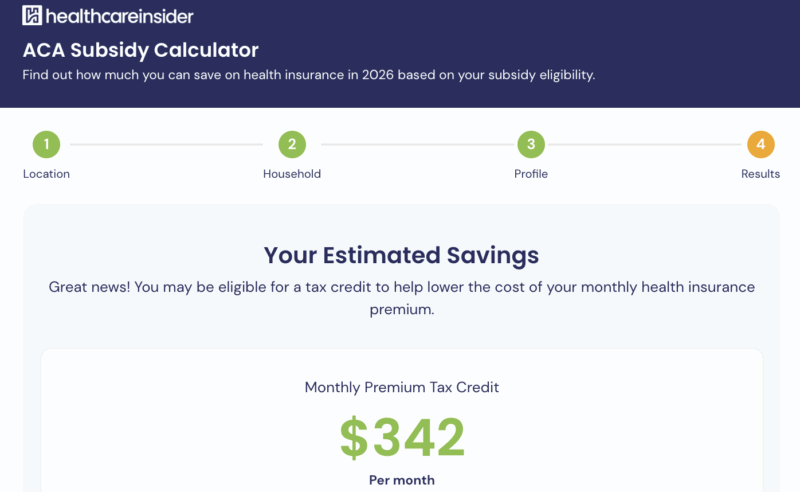Written by Michael LaPick
Healthcare Writer

Reviewed by Colleen McGuire
Healthcare Compliance Writer
We want to help you make educated healthcare decisions. While this post may have links to lead generation forms, this won’t influence our writing. We adhere to strict editorial standards to provide the most accurate and unbiased information.
-
Gig workers have multiple health insurance options—including ACA marketplace plans, Medicaid, employer coverage, short-term plans, and sharing ministries.
-
ACA plans and Medicaid offer the most comprehensive coverage, often with subsidies or low costs based on income.
-
Choosing the right plan depends on income, lifestyle, and needs—from full-year protection to temporary coverage while between gigs.
Introduction
If you’re self-employed, driving for a rideshare app, making a living on YouTube, or juggling multiple side hustles, you’re not alone—and you’re not out of options. More Americans than ever are earning income through gig work, but one major challenge persists: health insurance. Without employer-sponsored coverage, many gig workers feel overwhelmed navigating their choices.
But here’s the good news: there are more pathways to health coverage than you might think. In this guide, we’ll break down your options—whether you’re a freelancer, delivery driver, creator, or consultant—and help you find a health plan that fits your needs, budget, and lifestyle.
Why Health Insurance for Gig Workers Matters
Gig work has grown rapidly over the past decade, giving people more control over when, where, and how they work. But that flexibility comes at a price: most platforms (like Uber, DoorDash, or Fiverr) don’t provide benefits like traditional employers do.
That means gig workers are often responsible for securing their own health insurance—something that can feel confusing or out of reach.
Fortunately, the Affordable Care Act (ACA) opened the door to individual coverage that is:
- Legally required to cover pre-existing conditions
- Subsidized for many people based on income
- Offered through user-friendly comparison websites like Healthcare.com
Let’s walk through the most relevant options for gig workers today.
Health Insurance Options for Self-Employed
1. ACA Marketplace Plans
The most reliable and comprehensive option for gig workers is coverage through the federal or state health insurance marketplace.
Why it works:
- Guaranteed issue: No one can be denied for pre-existing conditions
- Income-based subsidies may significantly lower premiums
- Plans include essential health benefits (like prescriptions, mental health, and maternity)
Tips:
- Track all income from gig platforms, tips, and freelance projects to estimate your Modified Adjusted Gross Income (MAGI)
- Use our ACA Subsidy calculator to see if you may be eligible for financial aid.
Best for: Gig workers looking for full-year, comprehensive coverage—especially if your income is moderate or variable.
2. Medicaid (in Eligible States)
If your income is low or inconsistent, you may qualify for Medicaid, which provides free or very low-cost health insurance coverage.
Why it works:
- Comprehensive coverage with little to no premiums
- Many states have expanded Medicaid to cover more low-income adults
https://www.medicaid.gov/medicaid/medicaid-state-plan-amendments
Things to note:
- Qualification is based on the state you live in; Check to see your state’s latest Medicaid amendment.
Best for: Gig workers with fluctuating or low income, or those just starting out.
3. Spouse or Parent’s Employer Plan
If you’re under 26, you might be eligible for coverage through a spouse’s or parent’s employer-sponsored insurance.
Why it works:
- Often includes robust networks and employer contributions
- It may be cheaper than purchasing your own plan
Tips:
- You’ll typically need to enroll during open enrollment or after a qualifying life event (like job loss)
Best for: Gig workers or young adults under 26 seeking cost-effective coverage.
4. Short-Term Health Plans
Short-term medical plans can offer temporary coverage from 1 month to 364 days.
Why it works (temporarily):
- Enrollment is available year-round with quick approval
- Premiums may be lower than comprehensive ACA plans if ineligible for subsidy assistance.
What to watch:
- These plans often exclude pre-existing conditions
- Limited duration insurance with fewer benefits that don’t meet ACA standards
Best for: Gig workers between gigs or transitioning between other insurance options.
Compare ACA Health and Short-Term Medical Plans that meet your health needs and budget.
5. Health Care Sharing Ministries (HCSMs)
These are faith-based programs that let members share health expenses outside of a health insurance company policy, so they are not considered insurance and do not carry the same legal protections.
Why it works (for some):
- Lower monthly costs than traditional insurance
- May work for healthy individuals who rarely use medical services
Warnings:
- Not regulated like ACA plans
- Pre-existing conditions, mental health care, and preventive services may not be covered
Best for: Healthy individuals comfortable with non-traditional, community-based cost-sharing.
Common Issues & FAQs
Q: What income counts for ACA subsidies as a gig worker?
A: Your Modified Adjusted Gross Income (MAGI) includes all freelance income, rideshare earnings, 1099 income, and tips, minus allowable deductions.
Q: Can I write off health insurance premiums as a self-employed person?
A: Yes, if you have a net profit from self-employment, you may deduct premiums when filing taxes. This doesn’t affect subsidy eligibility but may lower your taxable income.
Q: What if I lose coverage mid-year?
A: Loss of coverage, or major life changes, can trigger a Special Enrollment Period—allowing you to apply for ACA coverage outside of the standard window.
Q: Do platforms like Uber or Instacart offer any health benefits?
A: Some offer limited health stipends or discounts, but they rarely provide actual insurance. Always read the fine print.
What You Can Do Next: Tools and Action Steps
Use this checklist to make your next move:
✅ Estimate your total gig income for the year
✅ Check your eligibility for Medicaid or ACA subsidies
✅ Compare plans at Healthcare.com
✅ Consider other household coverage options (spouse, parent)
✅ Set a calendar reminder for Open Enrollment (starts November 1 each year)
✅ Use HSA funds to pay plan premiums or healthcare expenses if you’ve previously contributed through a high-deductible plan
✅ Keep a paper trail of your income and expenses to make tax filing and subsidy calculations easier
Bottom Line: You Can Take Charge of Your Coverage
Gig work offers freedom, but it also means you have to be your own HR department. The upside? You can choose a health plan that actually fits your lifestyle and income, rather than settling for one-size-fits-all coverage.
Whether you need short-term protection or long-term security, the right plan is out there, and it’s more accessible than you might think.
A friendly team of licensed insurance agents is here to guide you.
.
Thank you for your feedback!








